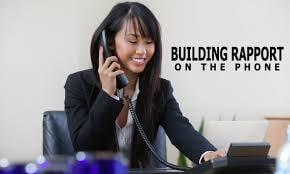
No Pep Talk—Just the Real Playbook
If you’re in real estate wholesale thinking smooth talk alone will make you rich, you’re already playing the wrong game. This isn’t about hype—it’s about closing deals. Every real estate investor worth their salt knows you can’t win without knowing how to build rapport fast. If you can’t develop rapport in both personal and professional settings, you’re gonna get ghosted by sellers who could have been your payday. Whether it’s a rundown duplex or a prime investment property, your ability to establish rapport determines whether you’re cashing checks or wasting minutes.
Why This Guide Smacks Different

Other blogs drip with theory, but theory doesn’t pay your bills. In wholesale real estate, the winners understand sellers don’t want a friend—they want a lifeline. Cash buyers are waiting in the wings, but if you can’t connect with sellers and turn that connection into meaningful relationships, your pipeline stays dry. This is street-level investing, not a classroom. We’re talking actionable plays you can run today, with tactics to cut through hesitation and get sellers talking so you can move that investment property before the competition even knocks on their door.
The Truth About Motivated Sellers
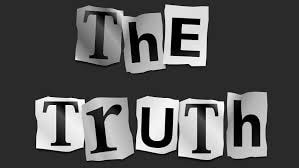
These aren’t happy homeowners just “exploring their options.” They’re people in situations where building rapport isn’t just nice—it’s survival. They might be staring down foreclosure, fighting with tenants, or drowning in repairs. Their problems are your opportunities, but only if you know how to develop rapport in both personal and professional settings without sounding like you’re reading off a script. The fastest way to establish rapport? Show genuine interest in their reality, make it clear you’re the real estate investor who can solve it, and keep them talking until they realize you’re their best—and maybe only—shot at unloading that investment property.
Cut the Dead Weight: Qualify Fast

Stop wasting time on dead leads. In real estate wholesale, every call costs you energy, and you can’t afford to burn it on sellers who will never close. You’re not in this game to hand out free advice—you’re here to buy investment property and flip it to cash buyers who are ready to move. Before you even think about building rapport, hit them with a couple of sharp, open ended questions to find out if they’re serious. Are they actually selling, and do they want a cash offer? If not, move on. A quick filter protects your time, your investment strategies, and your sanity.
Prep or Perish Before You Dial
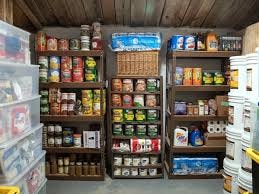
You wouldn’t walk into a fight blind, so why would you cold call without a plan? In wholesale real estate, your homework is your armor. Know the property, the neighborhood market, and the seller’s possible pain points. This isn’t just about facts—it’s about mutual understanding. When you know the numbers and the story behind them, building rapport becomes ten times easier. You can practice active listening without scrambling for your next question, and you’ll start to close faster because the seller feels you actually get their situation.
Know the Battlefield Before You Call

Think like a sniper, not a spray-and-pray rookie. Every real estate investor worth their grind knows you build trust by showing you’ve done your homework. Pull comps, check liens, look for code violations—this is your version of due diligence. Sellers can tell when you’re prepared, and that alone can help you establish rapport without even trying. A seller’s guard drops when they realize you know more about their property than they expected. That’s the critical edge in real estate wholesale that separates closers from talkers.
Set Your Mission and Lock It In

Going into a call without a mission is like running real estate wholesale without buyers lined up—you’re setting yourself up to fail. Before you even begin, know if you’re there to gather intel, lock the right property, or close a deal. Your market moves fast, and hesitation kills. Having a clear goal helps you build rapport faster because the seller can feel you’re serious. It also puts you in control of the conversation, guiding it toward your objective instead of wandering into dead-end small talk.
Stop Begging—Start Solving

The fastest way to lose in wholesale real estate is to sound desperate. You’re not here to “see if they might be interested”—you’re here because you’re the real estate investor who can fix their problem. Come with good rapport, not fake charm. Find common ground and lean into mutual trust. Sellers don’t care how much you want the property—they care about whether you can solve their selling nightmare without adding more stress. That’s how you build rapport and open the door to meaningful connections that actually lead to deals.
Open Strong or Go Home

Those first seconds make a big difference. Walk in weak and you’re done. Walk in confident, and you’ve got their attention. Start with clarity: “I’m a local real estate investor buying a few houses in this market—is now a bad time?” Add in eye contact if you’re face-to-face, or a tone that cuts through the noise on the phone. From there, your job is to practice active listening and pay close attention to their tone and hesitation. That’s how rapport is built and show genuine interest without sounding like you’re reading a script.
The MCTP Formula to Crack the Case

This one’s a killer move in wholesale real estate—Motivation, Condition, Timeframe, Price. These four bullets are how you slice through the fluff and build rapport in record time. You’re not here to guess—you’re here to get the truth so you can put together a deal that works for your market and your buyers. When you pay close attention to the seller’s tone, nonverbal cues, and even their facial expressions, you uncover more than they think they’re giving you. It’s a masterclass in good rapport that turns a casual conversation into a signed contract.
Shut Up and Listen: The 80/20 Rule
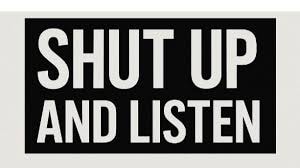
If you’re doing most of the talking, you’re losing. Sellers want to feel heard, and in wholesale real estate, that’s how you build mutual trust. Let them talk about the property’s history, their frustration with the market, or why they’re considering multiple offers. Keep your words tight, avoid killing the flow with irrelevant small talk, and instead focus on mutual trust through genuine listening. Every team member in your business should learn this—building rapport isn’t just for closers, it’s the heartbeat of your operation.
Blend In or Get Shut Out

You can’t roll up like a Wall Street suit and expect to win in wholesale real estate. If you want to build rapport, meet sellers where they’re at. Adapt to their pace, match their tone, and find a point of common ground that makes the conversation easy. Look for nonverbal cues like crossed arms or nervous shifting—these tell you where the seller’s head is at and how much trust you’ve earned. Keep your eyes open, your tone friendly, and your posture relaxed. Sellers will drop their guard, and you’ll be in the perfect spot to secure the deal.
The FORD Method for Instant Bond

If you’re struggling in wholesale real estate to spark a real conversation, use the FORD play: Family, Occupation, Recreation, Dreams. Ask about their family, their work, what they do for fun, and what they’d do if they didn’t have this property hanging over them. It’s not forced small talk—it’s how you start building rapport without feeling salesy. Find something in common, and you’re no longer just a company calling them—you’re a person they can picture doing business with. That makes you the real estate investor they call back when they’re ready to move.
Humor—Your Secret Weapon

A well-timed laugh can turn tension into trust. In wholesale real estate, that can be the edge between a dead lead and a signed deal. You’re not trying to become their best friend, but showing your personal life through humor can spark a harmonious relationship where the seller feels comfortable enough to be real with you. Crack a light joke about the weather, or laugh at something you have in common—it’s those micro-moments that build mutual trust faster than any pitch. Just keep it clean, keep it human, and remember you’re here to help them unload a headache, not add to it.
Earn Trust Through Empathy
People sell for reasons that hit deep: divorce, debt, death. In wholesale real estate, you win when you connect to that pain point without exploiting it. That means building rapport by actually listening and caring about their side of the story. Recognize their struggle without judgment and give them a path out. Look for nonverbal cues and eye contact that tell you they’re starting to open up. In that moment, you’re no longer just an investor—you’re the team member they trust to help navigate the process. And when they trust you, the customers they refer down the line will be worth more than any one sale.
Follow-Up Like a Closer

Most wholesale real estate deals don’t land on the first call—it’s the follow-up game that closes. If you’re consistent in your check-ins and tailor each conversation to what matters most to the seller, you’ll stand out from every lazy real estate investor who gave up too soon. Use a CRM to stay sharp, but remember: a quick text about their personal life or a callback tied to a shared perspective is worth more than a generic “just checking in.” That effort builds long-term trust and keeps you top of mind when money finally changes hands.
Old-School Hustle Still Pays
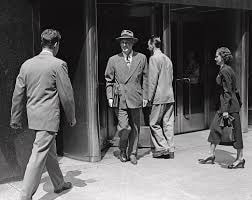
Sometimes, the phone isn’t enough. If a lead goes dark, get boots on the ground. Door knocking, handwritten notes, even stopping by a local company they own or work for—these small moves can reignite a cold lead. When you show effort beyond the standard, you set yourself apart. You might uncover multiple properties they’re looking to sell or hear about other clients in their circle. These offline tactics still win, especially in tight markets where everyone’s fighting for the same deals.
Drop the Fake Act

Sellers can smell fake from a mile away. You can’t “script” good rapport—you earn it. That means dropping the act and meeting them like a real person, not a corporate closer. Share examples of past wins and times you’ve helped homeowners in similar spots. Don’t be afraid to show a little vulnerability—it’s those small things that make a difference. When you keep it real, you don’t just close the deal—you start working relationships that pay for years. Sometimes that’s your break into a whole new network of sellers.
Lock the Intel Before You Hang Up
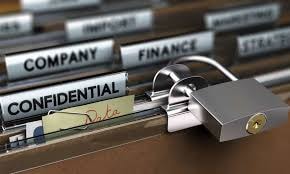
You can’t close a deal without the facts. In wholesale real estate, every conversation should end with you knowing the property’s status, the seller’s timeline, and the lowest price they’ll take. That’s your ammo. Ask about other houses they own—you might uncover multiple properties that turn one lead into a payday chain. Tie it all back to your process so they know you’re not just another company fishing for info; you’re the team member they can count on to keep the selling smooth and predictable.
Scripts: Use ’Em, Don’t Depend on ’Em
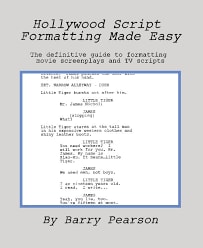
Scripts are like training wheels—useful, but you can’t rely on them forever. In wholesale real estate, real sellers want a real conversation, not canned lines. If you sound like a robot, you’ll lose the relationships you’ve worked hard to build. Share examples of how you’ve helped other customers and why your process works. Drop in a little about how you invest your own time and money to make deals happen. Sellers respect hustle when it’s backed by proof.
Make ’Em Feel Heard

When a seller feels understood, you’ve already won half the battle. This is where mutual trust grows. Keep your tone easy and your pace steady—let them talk without cutting in. Whether it’s about repairs, bad tenants, or just wanting to be done with the selling, make them feel like you get it. A strong company brand helps, but being genuine in your conversation is what seals the deal. At the end of the day, it’s those relationships that keep customers coming back or sending referrals your way.
Tech That Keeps You Sharp

In wholesale real estate, your memory alone won’t cut it. A strong CRM organizes leads, tracks follow-ups, and keeps your process tight. Use automation to remind you when to check in with cash buyers or a potential investment property owner. The right tools let you spot market trends before the competition and keep conversation flowing naturally. Whether it’s logging examples of past wins or storing facial expressions in meeting notes for quick recall, tech turns you into a team member sellers and customers can rely on.
Ethics Keep You in the Game
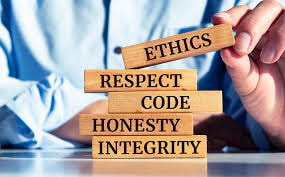
Cut corners once, and your reputation’s toast. In real estate wholesale, your word is your bond. If you promise a seller you’ll call back, begin that conversation with a recap of what you said last time. Deliver on every commitment to keep mutual trust alive. Your company brand is only as strong as your actions. Treat relationships with respect, and you’ll build a harmonious relationship with cash buyers and sellers alike that keeps deals—and money—flowing.
Track Your Numbers Like a Pro
If you’re not measuring, you’re gambling. In wholesale real estate, track every call, every offer, every deal. Keep tabs on how many houses you touch each month, and which investment strategies are paying off. This data isn’t just for you—it’s for your team member, your partners, and your future clients. Numbers show you where to invest, what to double down on, and when to shift gears. When you understand your market, you can target the right property and scale without the guesswork.
Get In, Get Real, Get Paid
At the end of the day, wholesale real estate is about solving problems, not playing games. Sellers want to know you’re the real estate wholesale pro who can move houses fast and clean. That means showing up real, with no fluff, and walking them through a process that makes sense. The more you can make their life easier, the more they’ll remember you—and tell other customers about the experience.
Being straight with people doesn’t just close one deal; it opens doors to future opportunities. Sellers talk. They’ve got friends, family, even co-workers who might need to offload houses too. Every satisfied seller is a walking billboard for your business. When you treat every conversation like it’s the most important one of your career, you’re not just building rapport—you’re building an army of customers who trust your company to deliver.
The Power Close
When you’ve done your homework, asked the right open ended questions, and kept the tone real, the close almost happens by itself. You’ve positioned yourself as the investor who understands their pain, has the investment property solution, and can execute without hassle. That’s when you simply lock in the agreement and start the paperwork. In this game, money follows trust—and trust comes from showing up consistently, delivering value, and making sure every deal is a win-win for both you and your customers.
Extra Mile Moves

In wholesale real estate, the edge comes from doing what other people won’t. That might mean visiting a property in person to get eyes on houses you’ve only seen in photos, or following up with meaningful connections you’ve built over time. Sellers respect genuine interest—when you remember details about their story, they feel heard. This builds working relationships that can lead to future deals without heavy marketing spend.
True pros practice active listening every time they talk to a seller. They aim for mutual understanding so the conversation flows naturally, and both sides know exactly what’s on the table. Go further by showing you can build mutual trust in the little moments—answering questions directly, being upfront about the numbers, and keeping promises.
Relationship Equity Pays Off
Deals aren’t just transactions; they’re investments in people. When you focus on meaningful relationships, you’re not just chasing a one-time win—you’re stacking long-term opportunities. A seller who feels like part of your network will pass your name along, creating organic referrals. That’s why the best houses often come from people you’ve already helped.
The magic happens when meaningful connections meet action. Every call, every visit, every small gesture is a brick in the trust wall you’re building. Over time, you’ll see how relationship equity pays off bigger than any one sale—and you’ll realize your reputation is the most valuable property you’ll ever own in this business.
Turning Data Into Decisions
In wholesale real estate, the difference between a gamble and a sure thing is knowing your numbers. Track every investment you make—time, calls, offers—and compare it to results. This helps you understand where the wins are coming from and which customers bring the highest ROI.
Look for patterns in your open ended questions. Which ones make a person open up faster? Which reveal critical details about the property or seller’s situation? These answers tell you where to invest your effort and money for maximum return.
First Impressions Set the Tone
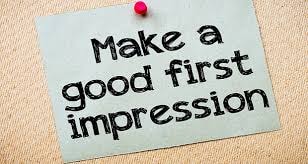
When you begin a conversation, you’ve got seconds to prove you’re worth listening to. In wholesale real estate, that first impression can make or break your shot at a deal. Be clear, be confident, and lead with value. Sellers need to understand that you’re not just there for a transaction—you’re there to solve their problem.
Show up prepared, with insight into their property and the investment you’re willing to make in getting it closed fast. It’s this kind of preparation that makes customers remember your name long after the ink is dry. And in this business, that memory is worth more than any single check.
Why Sellers Choose You Over the Rest
In wholesale real estate, the seller’s choice often comes down to whether they feel you actually understand their situation. You can’t fake that—it comes from listening, reading between the lines, and paying attention to the details that matter to that person. Every seller has a backstory, and when you make the effort to learn it, you create a bridge that other investors can’t cross.
The seller isn’t just moving a property—they’re moving a piece of their life. If you treat them like a number instead of a person, they’ll move on to someone else. But when you show them you understand their goals, obstacles, and timeline, you turn a transaction into trust—and trust is what keeps customers coming back.
The Follow-Through That Seals It

Getting a verbal “yes” is only the halfway point. Your follow-through proves to the seller that their trust was well-placed. In wholesale real estate, that means keeping your promises, hitting deadlines, and making sure every step of the process is smooth for that person you’re working with.
When sellers see that you understand the urgency and the emotional weight they’re carrying, they relax. They stop worrying about whether they made the right call, because you’re proving it with action. That’s the kind of performance that turns one happy seller into a network of referrals—and more deals than you ever imagined.
Closing With Confidence
In wholesale real estate, confidence isn’t about talking louder—it’s about proving you’ve done the work and you’re ready to perform. When you’re on the verge of closing, make sure the person you’re working with feels secure in every step. Walk them through what’s coming next, explain how the paperwork flows, and address any last-minute questions before they even have to ask.
You’re not just moving a property; you’re guiding a person through one of the biggest transitions in their life. The more you make them feel like you’re in control, the easier it is for them to relax and focus on what’s next. That confidence cements your reputation as someone who can be trusted to get things done.
Leaving the Door Open for the Future

Every person you work with is a potential repeat client or referral source. Even after the paperwork is signed and the keys are exchanged, keep the relationship alive. A quick check-in weeks later shows them you genuinely care, not just about the transaction, but about their long-term outcome.
In wholesale real estate, this approach keeps your name circulating in the right circles. People remember how you treated them, and when another person in their network needs to sell, they’ll be the first to pass your name along. That’s how you turn today’s closings into tomorrow’s opportunities—without spending an extra dime on marketing.